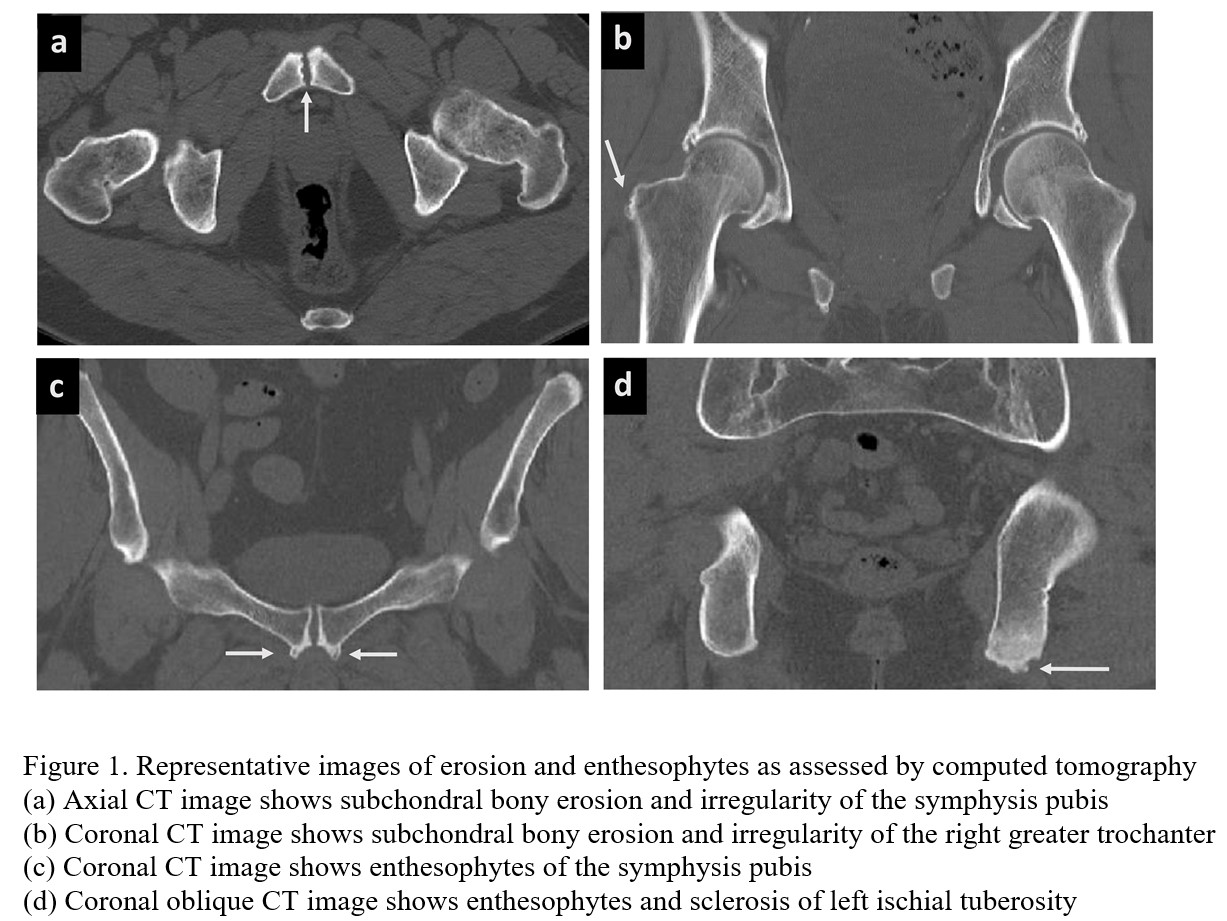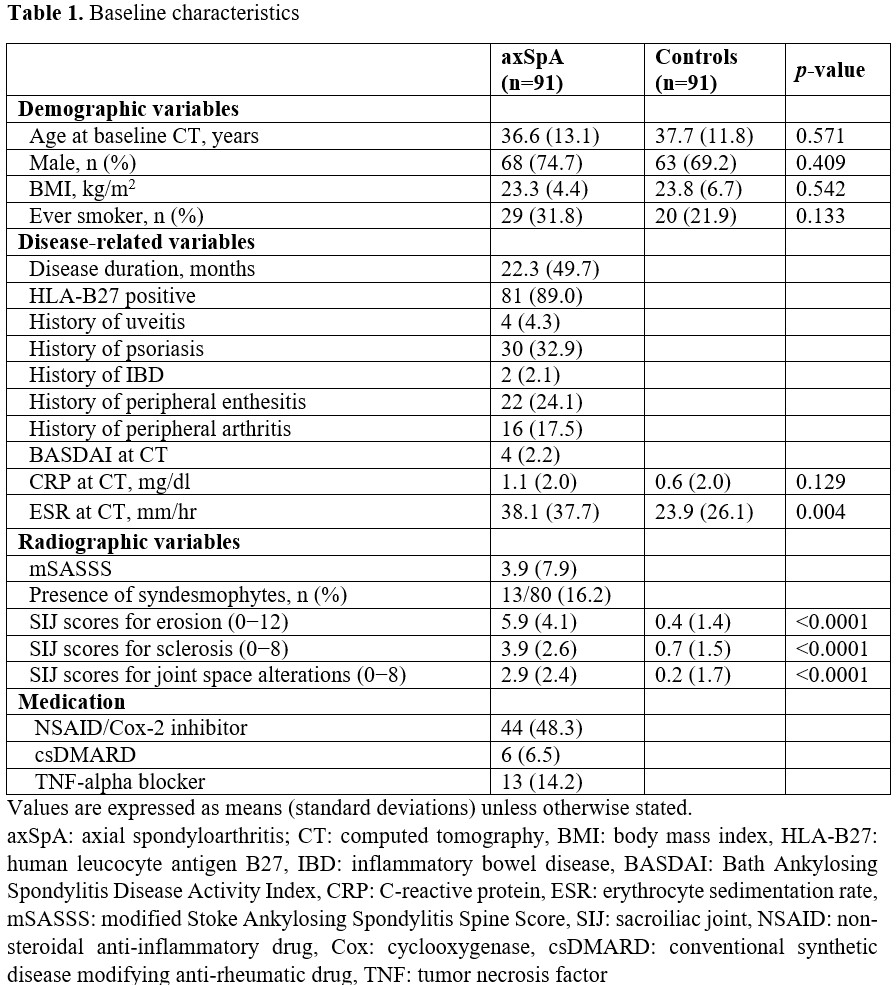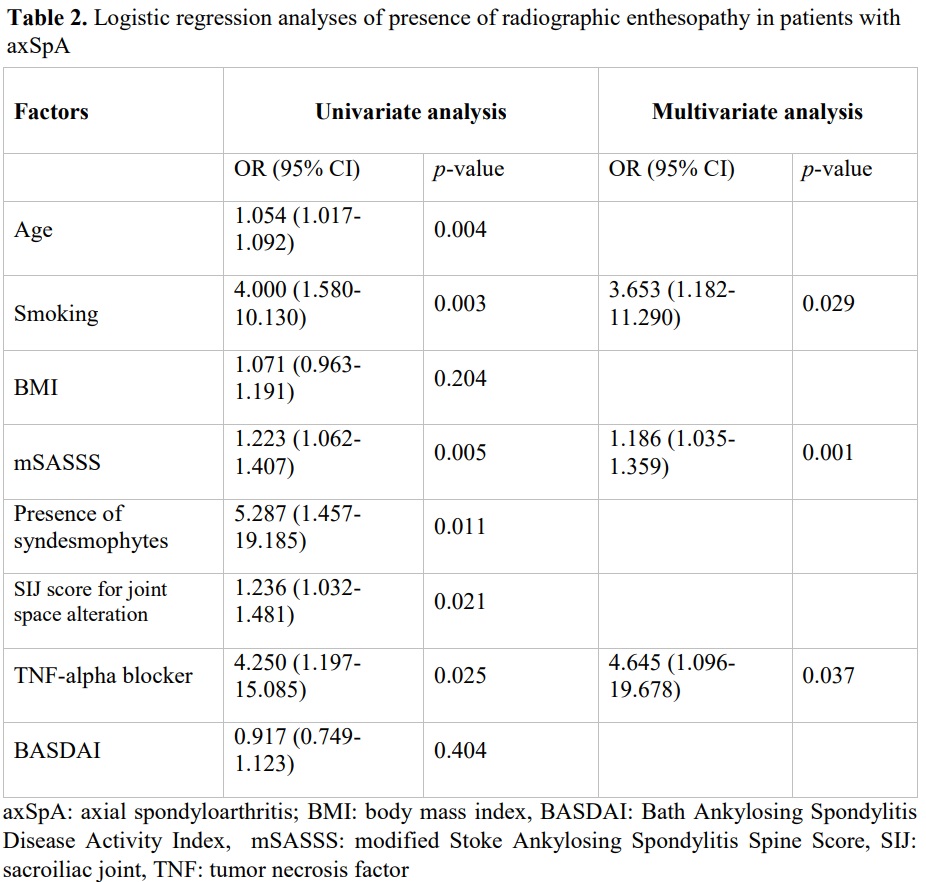Session Information
Date: Sunday, November 17, 2024
Title: SpA Including PsA – Diagnosis, Manifestations, & Outcomes Poster II
Session Type: Poster Session B
Session Time: 10:30AM-12:30PM
Background/Purpose: Axial spondyloarthritis (axSpA) is a group of related inflammatory diseases characterized by enthesitis, synovitis, and osteitis. The assessment of axial enthesitis in the pelvis using physical examination, conventional radiography, and ultrasound may be challenging, resulting in limited data. Beyond the spine and sacroiliac joint, evidence of damage from axial entheseal lesions based on computed tomography (CT) is limited in patients with axSpA. This single‑center, retrospective study aimed to investigate the prevalence and progression of entheseal lesions at the hip and pelvis via CT and determine the associated factors in patients with axial axSpA.
Methods: AxSpA patients who underwent CT that included the pelvis and hip and age-sex-matched controls who underwent CT for genitourinary indications were analyzed. Each CT exam was retrospectively and independently evaluated by a certified musculosketetal radiologist and an experienced rheumatologist. Eight bilateral entheseal sites were evaluated. Each entheseal site was scored as follows: 0 (no damage), 1 (irregularities and/or erosions), and 2 (enthesophytes) (Figure 1). To evaluate the longitudinal changes of radiographic enthesopathy, additional pelvic CT for any reason after the baseline CT were also scored in both groups.
Results: Ninety-one patients (mean age 36.6±13.1 years) and 91 controls were analyzed. Enthesopathy was more frequently observed in the axSpA group (39.6%) compared to that in controls (21.9%) (p=0.01) (Table 1), with the symphysis pubis (22.0%) most commonly affected. Entheseal scores of the symphysis pubis and greater trochanter were significantly higher in the axSpA group than those in controls. Smoking (OR, 3.653), modified stoke ankylosing spondylitis spinal score (OR, 1.186), and use of TNF-alpha blockers (OR, 4.645) were independent factors associated with enthesopathy in axSpA patients (Table 2). Radiographic progression of entheseal lesions at approximately 2 years were very rare.
Conclusion: Radiographic enthesopathy of the pelvis and hip was prominent in axSpA patients and linked to spinal damage, smoking, and use of TNF-alpha blockers.
To cite this abstract in AMA style:
Bak S, Lee K, Oh E, Kim H, Kim S. Prevalence, Progression, and Associated Factors of Enthesopathy at Hip and Pelvic Regions in Patients with Axial Spondyloarthritis: Computed Tomography-based Assessment [abstract]. Arthritis Rheumatol. 2024; 76 (suppl 9). https://acrabstracts.org/abstract/prevalence-progression-and-associated-factors-of-enthesopathy-at-hip-and-pelvic-regions-in-patients-with-axial-spondyloarthritis-computed-tomography-based-assessment/. Accessed .« Back to ACR Convergence 2024
ACR Meeting Abstracts - https://acrabstracts.org/abstract/prevalence-progression-and-associated-factors-of-enthesopathy-at-hip-and-pelvic-regions-in-patients-with-axial-spondyloarthritis-computed-tomography-based-assessment/



